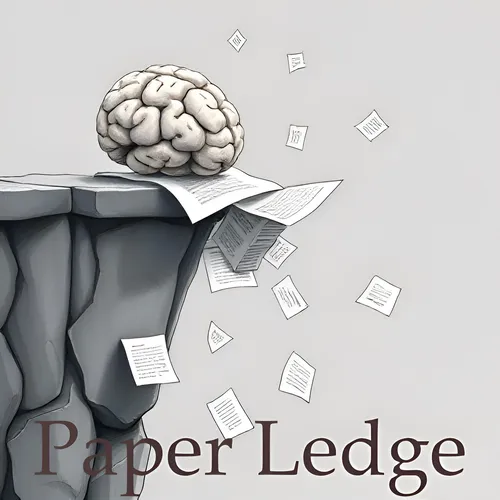Computers and Society - Just Put a Human in the Loop? Investigating LLM-Assisted Annotation for Subjective Tasks
- Author
- ernestasposkus
- Published
- Tue 22 Jul 2025
- Episode Link
- https://www.paperledge.com/e/computers-and-society-just-put-a-human-in-the-loop-investigating-llm-assisted-annotation-for-subjective-tasks/
Alright learning crew, Ernis here, ready to dive into some fascinating research! Today we're tackling a paper that explores how using AI, specifically those big language models or _LLMs_, to help us label data can actually... well, kinda mess things up if we're not careful.
Think of it this way: imagine you're judging a chili cook-off. You taste a few entries and have a pretty good idea of what you like. Now, imagine someone whispers in your ear, "Everyone else seems to love this one with the secret ingredient X." Would that change your opinion? Maybe just a little? That's kind of what's happening here.
This paper looks at a situation where people are labeling data – things like classifying text snippets or tagging images – and they're getting suggestions from an AI. Now, these aren't simple "yes/no" questions. These are subjective things, where there might be multiple valid answers. Like, "Is this sentence sarcastic?" or "Does this image evoke a feeling of nostalgia?"
The researchers ran a big experiment with over 400 people, giving them annotation tasks and seeing what happened when they got AI assistance. They tested different AI models and different datasets, too, to make sure their findings weren't just a fluke.
- What they found: Giving people LLM suggestions didn't make them faster at labeling.
- But: It did make them feel more confident about their answers.
- And here's the kicker: People tended to just... go with what the AI suggested, even if they might have thought differently initially. This significantly changed the distribution of labels.
So, why is this a big deal? Well, consider this: we often use these labeled datasets to train and evaluate AI models! If the labels themselves are influenced by AI, we're essentially grading the AI's homework using its own answers! The researchers found that, using AI-assisted labels, the AI models appeared to perform significantly better. It's like cheating on a test and then bragging about your high score!
“We believe our work underlines the importance of understanding the impact of LLM-assisted annotation on subjective, qualitative tasks, on the creation of gold data for training and testing, and on the evaluation of NLP systems on subjective tasks.”
This has huge implications for anyone working with AI, especially in fields like social sciences where subjective interpretations are key. If we're not careful, we could be building AI systems that reflect the biases of the AI itself, rather than the real world.
So, what does this mean for you, the learning crew?
- For Researchers: Be extremely cautious when using AI to assist in labeling subjective data. Understand that it can skew your results.
- For AI Developers: We need to think critically about how we're evaluating our models, especially on tasks that involve human judgment. Are we really measuring what we think we're measuring?
- For Everyone: This highlights the importance of understanding how AI can influence our own perceptions and decisions, even in subtle ways.
This research reminds us that AI is a powerful tool, but it's not a magic bullet. We need to use it thoughtfully and be aware of its potential biases.
Here are some things that are making me think:
- If AI assistance is changing the label distributions, are we accidentally creating a feedback loop where the AI reinforces its own biases?
- Could we design AI assistance tools that encourage critical thinking and diverse perspectives, rather than just offering a single "best" answer?
What do you think, learning crew? Let's discuss!
Credit to Paper authors: Hope Schroeder, Deb Roy, Jad Kabbara
